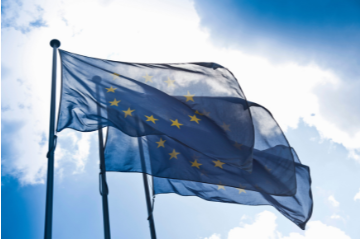Europe, especially its western part which has seen a surge in terrorist attacks in the last few years, urgently requires a robust counter terrorism and extremism policy, according to Dr. Radkho Hokovsky, the executive director of the European Values, a Czech Republic based think tank.
Dr. Hokovsky was delivering a talk on “European Union’s Counter Terrorism Policy” at Observer Research Foundation on August 29. The idea behind the talk was to understand the nature of threat of terrorism in the two regions and learn from their experiences which would help evolve a robust counter terrorism narrative.
Dr. Hokovsky opened the talk by highlighting the need to understand the situation of terrorism in Western Europe so that effective preventive measures to curb its spread can be introduced in eastern and central Europe. He said, according to the latest European Police (Europol) Report, Europe is facing six different kinds of terrorism today -- Jihadist terrorism, Left wing extremism, Right wing extremism, separatists activities, single Issue based terrorism and terrorist activity with an unspecified purpose. Out of these, the most visible and deadly form is Jihadist terrorism which is also increasing in intensity in the European region, he said.
Dr. Hokovsky pointed out that though only nine percent of the total attacks in Europe in the year 2016 were conducted by Jihadists, they accounted for approximately 55 percent of total victims. Also the number of people involved in Jihadists terrorism was higher than other forms of terrorism. Approximately 71 percent of the total people arrested for terrorist activities in 2016 were jihadists, emphasising the potency of this form of terrorism in Europe.
Dr. Hokovsky further shared the major trends describing the current characteristics of terrorism in Europe illustrated in the Europol Report. According to it, the main source of terrorism in Europe is jihadism which is directed or inspired by the radical Islamic ideology of the “Islamic State” based on the notion that “Islam is under attack from the West”. The range of weapons used by these groups include automatic guns, explosives , blades and even use of overtly benign objects like cars to carry out deadly attacks. The targets of such attacks are varied, from individual group representative of “non Islamic value” to institutions of International importance, making it difficult for security forces to cast their protective net. The purpose of these attacks is to communicate the jihadist propaganda, which aims to radicalize vulnerable communities like refugees and immigrants tapping on their socio economic grievances. This wave of mass radicalisation in Europe is the main cause for the Jihadist movement.
According to Dr. Hokovsky, the possible steps that can be taken to tackle this crisis of radicalisation should include high intensity work by the security services, development of an overarching central body responsible for internal security of the European Union, along with development of a creative strategy aiming at prevention of spread of jihadist ideology and creating a counter narrative.
Mr. Sushant Sareen, Senior Fellow at the Vivekananda India Foundation, and the discussant for the session, drew attention to the Indian perspective on terrorism and its counter policy. In his opinion, India faces a similar dilemma as Europe. The phenomenon and forms of terrorism faced by India and Europe are broadly same, but the Indian jihadist terrorism is predominately State sponsored from across the border (Pakistan) making it distinct from its European counterpart. Mr. Sareen observed that state sponsored terror attacks are higher in intensity compared to terror acts carried out by self-motivated individuals radicalised by ideologies of the Islamic state.
Mr Sareen said India faces the problem of lack of coordination and structural failure among States while trying to tackle the problem of terrorism. He pointed out that even though India has a central agency like the National Investigation Agency exclusively to focus on internal security, these agencies lack teeth required to deal with the scenario of terrorism in the country. Mr. Sareen also commented on how socio economic grievances cannot be considered a predominant cause for terrorism in Europe. Rather, according to him, the present terror scenario of Europe is a manifestation of a concerted indoctrination which has occurred in Europe of the jihadist ideology over the last 35 to 40 years. His suggestions for the European situation included: dissemination of a counter narrative which could be based on European values, understanding the phenomenon of terrorism, apart from beefing up the security structure.
During the course of the discussion, varied issues related radicalisation in the hyper connected world to the impact of xenophobia in making communities vulnerable to radicalisation was brought to the table. Opening up the discussion further, Ms. Britta Peterson, Senior Fellow, at ORF sought to trace European historicity of terrorism by giving the example of Left wing terrorism of the Red army in Western Europe during the 1970s and 1980s, which was neutralised with the end of Cold War. Such experiences of the past can also be tapped to devise a plan to tackle the present threat Jihadist terrorism in the same region.
Ms. Maya Mirchandani, Senior Fellow, ORF, and also the moderator, summed up the session by emphasising that the situation of terrorism in India and Europe comes with its similarities and differences. One of the difference being the demographic characteristics impacting terrorism in the two regions. Europe predominantly is dealing with immigrants and outsiders in context to jihadist terrorism, whereas Muslims and Islam is part of the subcontinental demographic. Therefore such subtle differences require a nuanced approach towards creating region specific strategies to counter this pervasive problem of Terrorism.
This report was prepared by Damini Singh, Research Intern, Observer Research Foundation, Delhi
The views expressed above belong to the author(s). ORF research and analyses now available on Telegram! Click here to access our curated content — blogs, longforms and interviews.




 PREV
PREV

